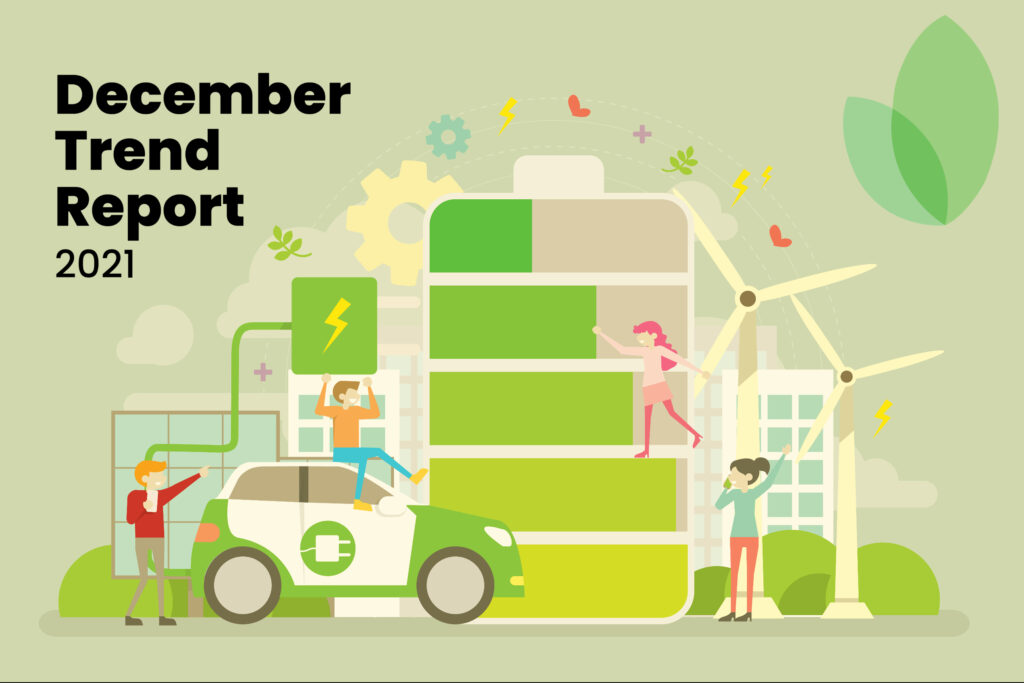With the new year approaching, it can be a great time to take a moment and reflect on all of the changes of the past year and to look forward to the future ahead of us. Here at Prepr, we continue to reflect on new tech trends in some of the most affected sectors: manufacturing, healthcare, retail, education and mobility.
Healthcare: Internet of Things
With technology advancing, the Internet of Things continues to provide critical innovation for those with chronic health conditions. The current and future wearable technology created with the technology has the potential to be life-changing for so many people with a wide range of conditions. According to the World Health Organization, 422 million people worldwide suffer from Diabetes. Connected tech could provide medical workers with the critical data they need to better treat these patients and provide them with longer, more quality lives.
Manufacturing: Digital Technology
The continued and accelerated adoption of new technologies allows manufacturers to scale effectively and efficiently. According to Deloitte, smart factories and “advanced global “lighthouse” factories showcase the art of the possible.” Between Robots and AI, the future of manufacturing looks to be upon us.
Mobility: Digital Integration
Digital Technology is impacting countless Industries and mobility and transit are no exception. According to Deloitte, “using digital technology to increase throughput, improve security, and help drive a better experience.” The current and future implementation and new digital technologies can allow for a safer and more pleasant transit experience for everyone.
Retail: Sustainability
With the current state of the environment, it is no wonder that an increasing number of consumers are concerned about the sustainability of their purchases. As such, more and more retailers are working to build marketable sustainability initiatives for their customers. According to McKinsey and Company, “65 percent of German and UK consumers now say they will buy more high-quality items that last longer.” The same trend is true in Canada and around the world. With the changing economic and environmental climate, sustainable consumerism is here to stay.
Education: STEAM
While many are familiar with the STEM acronym, Science, Technology, Engineering, and Mathematics – they are less familiar with STEAM, but this increasingly popular approach to curriculum is working to provide students with the best step forward into the workplace. STEAM refers to STEM plus Arts. According to the University of Calgary, STEAM produces “students who take thoughtful risks, engage in experiential learning, persist in problem-solving.” This learning approach is taking off and is likely to remain popular well into the future.
Food: Alternative Diets
As the food and restaurant industries continue to struggle as a result of the Covid-19 pandemic, one marketable way to get ahead has been tapping into alternative eating. Sales of products targeting an alternative eating habit or “a ‘lifestyle’ diet claim grew 13%” in the past year and this trend shows no signs of slowing down.
Hospitality & Tourism: Trust
With the pandemic still moving through the world – travel and tourism are not at the forefront of most people’s minds. Those in the hospitality industry are slowly getting more traction, but with continued restrictions and border issues, travellers are warry for both their safety and their wallet. According to Deloitte, “trust will play a pivotal role in enabling organizations to recover and rebuild in the near term.” Building trust with consumers can allow hospitality businesses the retain customers and better attract those with understandable apprehensions.
Environment: Customer Awareness
Recent research suggests that the most critical influencers of industry are not large manufacturers or energy giants, but consumers. The increasing number of conscious consumers and popular activists is driving the environmental sector forward and shows no signs of stopping. As the millennial generation ages into the largest purchasing demographic, their influence grows and so does investment in new environmental technologies and innovations.
Finance: Data Analytics Technologies
Data collection and analysis are critical in planning for the future and making smart decisions in the present. According to Gartner, “Analytics has become a key driver of how value is created in most businesses, and the finance function is now drowning in data.” The finance sector is poised to continue its increasing adoption of new technologies in order to better support data collection and analysis.
Energy: People-Centred Renewables
Renewable energy is, to no one’s surprise, continuing to grow. As more and more cities aim to boost their renewable energy use and put their people first, certain renewables are emerging as favourites. According to Deloitte, “renewable solar and wind power can play a crucial role” in helping cities to achieve their energy goals. People-centres smart cities are growing and along with them, so is the renewable energy market.
Read last month’s Trend Report here: November Trend Report
To find out how you can become an innovator in your industry, check out our Future Challenge initiative.
Make sure to follow the social media links in our footer to get timely updates on all things Prepr.

